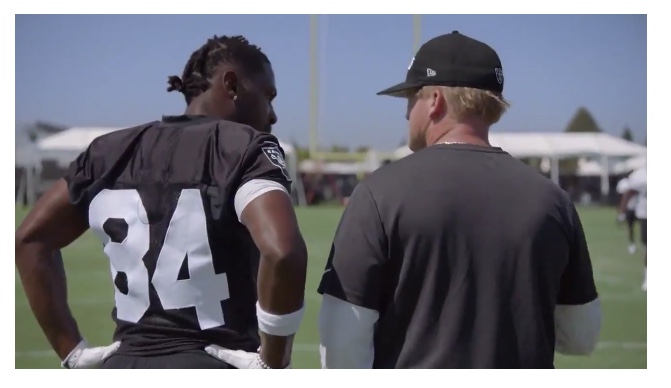Legal analysis: Could Antonio Brown just sign a waiver?
On Monday, August 12, 2019, a neutral, independent arbitrator held that Antonio Brown will be unable to use his Schutt AiR Advantage helmet. Brown – who has been donning the same type of helmet since he was in Pee Wee football – would be unable to play or receive a paycheck unless he wears an otherwise approved helmet. After Brown believed he found a suitable replacement, the NFL informed him that the helmet did not meet additional testing.
From a legal standpoint, the issue of whether Brown can sign an injury waiver to effectively circumvent the arbitrator’s ruling has come to the forefront. However, the validity of such waivers has historically been strictly scrutinized.
Former players have successfully settled cases against the NFL based on the theory that the league was negligent and breached its duty to take reasonable precautions for players’ safety. These claims are founded on the idea that the league either knew or should have known about these risks and should have done more to ensure players made an informed choice.
On the other hand, a waiver is an agreement altering the rights and responsibilities of the parties. While negligence is a legal cause of action, a waiver is a defense to negligence claims and is based on the plaintiff’s express assumption of risk. Waivers must meet two requirements to be enforceable: (1) the scope of the waiver must be clear; and, (2) the waiver must be consistent with public policy. Waivers are generally held to be against public policy if one party has unequal bargaining rights.
The bargaining power between the players and the NFL is beyond extreme. Most players don’t hold any leverage in contract negotiations with teams, and even less regarding league rules and conditions of play. Therefore, once a player signs a contract, the league is the party that sets and enforces rules.
In Antonio Brown’s case, there is no issue of unequal bargaining power or any concerns over public policy. The most likely reason the NFL has not entered into a waiver with Brown is because it simply doesn’t have to. The league has been scarred by the recent concussion litigation and does not want to be left exposed to any potential liability in allowing Brown to use his Schutt AiR Advantage helmet. In fact, ninety-nine percent of studied retired NFL players’ brains show signs of CTE.
Most importantly, the league does not owe Brown anything. While Brown may allege that his helmet preference is safety related, the league is in a better position to determine player safety and is the ultimate decision maker. The likeliest, fairest outcome is that the league gives Brown the same one-year grace period that was given last year to players like Patriots quarterback Tom Brady.



Leave a Reply
Want to join the discussion?Feel free to contribute!